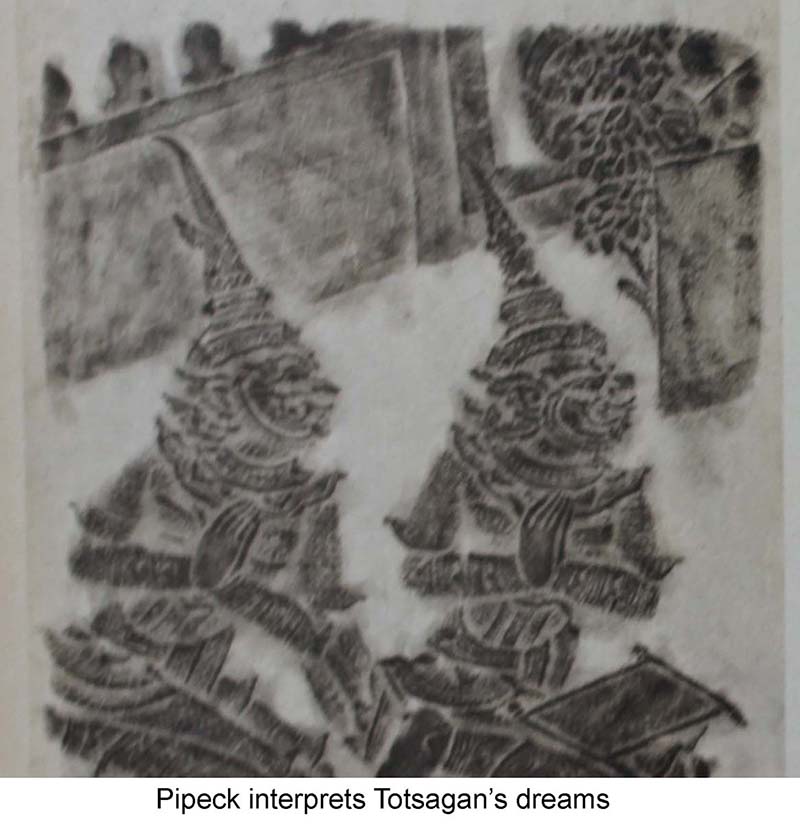|
|
||
|
|
||
|
Shortly after the reconstruction of Longka, Totsagan has two ominous dreams, which he calls on his brother, Pipeck, a demon with skill in such arts, to interpret. "A white vulture came flying from the East," says Totsagan. "It crossed the ocean on powerful wings and landed in Longka's marketplace. A black vulture came flying from the West. Seeing it, the white bird climbed high above the newcomer and then swooped. The two vultures clashed and with flashing talons and curved beaks fought until the feathers flew. The black bird fell vanquished and died. As it did so, I became aware that it was of the demons' party." "Then came the second dream," Totsagan continues. "A demon carried in his hand half a coconut shell, filled with oil, in which a wick floated. A beautiful woman lit the wick. The fire spread from the wick to the nutshell and then to the demon's hand and on until the whole of the demon's body was consumed by the flames." "Tell me, brother Pipeck, what it is these dreams mean." Pipeck, who has been noting down occult symbols during this narration, now consults his board. "The interpretation is not hard to arrive at," he says. "The white vulture is Phra Ram, and the black yourself King Totsagan. The first dream means that Phra Ram will defeat you in battle. The beautiful woman in the second dream in Nang Seeda. It warns of the downfall of your kingly self, of Longka and of the demon race through Nang Seeda." So says Pipeck. Totsagan, displeased at this interpretation, asks, "How may these things be circumvented?" And his brother replies, "Only by the return of Nang Seeda." For a moment the king is speechless. He thinks of the suffering that the pursuit of the goddess has caused him and the misfortune it has brought his kingdom, and his anger rises. "Return Seeda !" he says. "These are the words of a traitor." |
||
|
|
||




